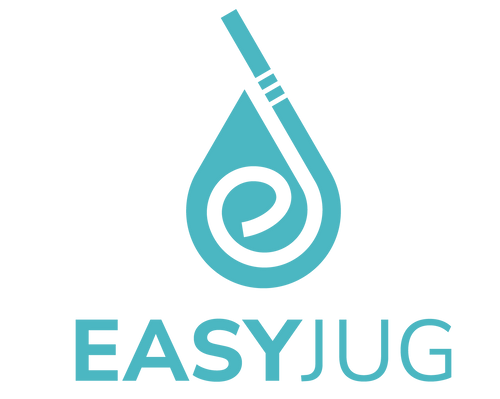Navigating the postpartum period can be challenging for new mothers, which is why postpartum nursing care plans are essential. These comprehensive plans are designed to address the unique needs of new mothers after childbirth, encompassing various health aspects such as physical recovery, emotional support, and breastfeeding assistance. In this blog post, we will delve into the key components of effective postpartum nursing care plans, explore in-depth articles on physical recovery and emotional health, and highlight the importance of hydration and proper breastfeeding support. Our goal is to provide new mothers with the information and resources they need to ensure a smooth and healthy recovery.
Understanding Postpartum Nursing Care Plans
Postpartum nursing care plans are designed to address the unique needs of new mothers after childbirth. These plans encompass a variety of health aspects, including physical recovery, emotional support, and breastfeeding assistance. Here are the key components of an effective postpartum nursing care plan:
1. Physical Recovery
- Monitoring Vital Signs: Regular checks on blood pressure, heart rate, and temperature are essential to detect any complications early.
- Managing Pain and Discomfort: Pain management strategies, including medications and non-pharmacological methods like sitz baths and warm water treatments, help alleviate discomfort.
- Healing from Cesarean Section or Vaginal Delivery: Specific care plans for incision sites, managing blood loss, and supporting uterine contractions aid in recovery.
- Addressing Postpartum Hemorrhage: Immediate attention to blood flow and clot formation can prevent severe complications.

Dive Deeper into Physical Recovery Care
Understanding and managing physical recovery is a critical aspect of postpartum care. To help you navigate this period with confidence, we've compiled a series of in-depth articles that address some of the most common concerns new mothers face. Each article provides detailed information, practical tips, and expert advice to support your recovery journey.
How Long Does Postpartum Constipation Last After Birth?
Constipation is a common issue many new mothers encounter after childbirth. This article explores the typical duration of postpartum constipation, factors that contribute to it, and effective strategies for relief. Learn about dietary changes, hydration tips, and gentle exercises that can help alleviate this uncomfortable condition.
When Does C-Section Bleeding Stop? Essential Tips
Bleeding after a C-section can be concerning for many new mothers. In this article, we discuss the normal timeline for C-section bleeding, signs to watch for that may indicate complications, and essential tips for managing and monitoring your recovery. Find out what to expect and how to care for your body during this healing process.
Why is Postpartum Bleeding Bright Red & What's Normal
Postpartum bleeding, also known as lochia, is a natural part of the recovery process. However, understanding what's normal and when to seek help is crucial. This article explains why postpartum bleeding might be bright red, the stages of lochia, and when changes in color or volume may require medical attention. Empower yourself with knowledge to ensure a smooth recovery.
How and When Can I Take a Bath After C-Section
Taking a bath after a C-section can be a soothing and relaxing experience, but it's important to know when it's safe to do so. This article provides guidelines on the appropriate time to take a bath after your surgery, how to prepare for it, and tips for ensuring your incision site remains clean and dry. Learn about the benefits of warm water immersion and how to make your bath a healing experience.

2. Emotional and Mental Health
- Recognizing Postpartum Depression: Understanding the signs of baby blues and postpartum depression is crucial. Support systems, including counseling and support groups, can make a significant impact.
- Providing Emotional Support: Family members and healthcare providers play a vital role in offering continuous emotional support during this period.
- Managing Psychological Changes: Hormonal changes can lead to mood swings and depressive symptoms. Creating a supportive environment helps in coping with these changes.
Dive Deeper into Emotional and Mental Health
Caring for your emotional and mental health is just as important as addressing physical recovery during the postpartum period. To support you in navigating these changes, we’ve created a collection of articles that provide valuable insights and practical advice. Each piece is designed to help you understand and manage your mental well-being, fostering a sense of calm and confidence as you adjust to life with your new baby.

Postpartum Anxiety Test: A New Mother's Essential Evaluation
Anxiety is a common but often overlooked aspect of the postpartum experience. This article introduces a comprehensive postpartum anxiety test, helping you evaluate your symptoms and understand when it might be time to seek professional support. Discover the signs of postpartum anxiety, learn about potential triggers, and find effective coping strategies to manage your mental health during this critical time.
The Ultimate Guide to Herbal Baths for Postpartum Healing
Herbal baths can be a soothing and healing practice for new mothers. This ultimate guide explores the benefits of various herbs and how they can support your emotional and mental well-being. Learn how to prepare different herbal baths that promote relaxation, alleviate stress, and aid in your overall postpartum recovery. Detailed recipes and step-by-step instructions make it easy to incorporate this nurturing ritual into your self-care routine.
3. Breastfeeding and Infant Care
- Lactation Consultation: Access to lactation consultants can address breastfeeding challenges and promote effective breastfeeding practices.
- Monitoring Infant Care: Ensuring the baby's health through regular check-ups, weight monitoring, and managing common issues like bowel movements and stool softeners.
- Supporting Milk Production: Guidance on balanced diets and hydration, essential for optimal milk production.

Dive Deeper into Breastfeeding and Infant Care
Breastfeeding and caring for your infant bring unique challenges and rewards. To help you navigate this crucial period, we’ve compiled a series of informative articles that provide practical advice and expert tips on various aspects of breastfeeding and infant care. These articles aim to support you in creating a nurturing and efficient feeding routine for your baby while ensuring your own well-being.
Oatmeal and Breastfeeding: A Powerful Duo for Milk Supply
Discover how oatmeal can boost your milk supply and support your breastfeeding journey. This article explains the benefits of incorporating oatmeal into your diet, offers delicious recipes, and provides tips on how to maximize its lactation-boosting properties.
Best Smoothies for Breastfeeding Moms to Boost Milk Supply
Smoothies are a convenient and nutritious way to enhance your milk production. Learn about the best ingredients to include in your smoothies, how they benefit lactation, and find recipes specifically designed to boost your milk supply while keeping you energized.
Effective Ways to Relieve Engorged Breasts When You're Not Breastfeeding
Engorged breasts can be painful and uncomfortable, even if you're not breastfeeding. This article provides effective methods to relieve engorgement, including natural remedies, massage techniques, and tips on maintaining breast health.
Why Breastfeeding Moms Need Protein for Lactation
Protein plays a vital role in lactation. Discover why it’s essential for breastfeeding mothers, how it supports milk production, and the best sources of protein to include in your diet for optimal health and milk supply.
Why Am I So Hungry While Breastfeeding and What Food to Eat
Feeling extra hungry while breastfeeding is normal. This article explores the reasons behind increased hunger, the importance of a balanced diet, and the best foods to eat to stay nourished and support your lactation needs.
When Does Lactation Start: A Guide to Breast Milk
Understanding the timeline of lactation can help you prepare for breastfeeding. This guide covers the stages of milk production, signs that lactation has begun, and tips on establishing a successful breastfeeding routine.
The Best Water Bottle for Breastfeeding Moms: EasyJug
Hydration is crucial for breastfeeding mothers, and having the right water bottle can make a significant difference. Learn why EasyJug is the best choice for breastfeeding moms, featuring its unique design tailored to meet your hydration needs effortlessly.
How Much Water Should I Drink While Breastfeeding?
Staying hydrated is essential for milk production and overall health. This article explains how much water you should drink while breastfeeding, signs of dehydration to watch for, and practical tips for maintaining adequate hydration throughout the day.
Creating a Breastmilk Stockpile: A Practical Guide for Busy Moms
Building a breastmilk stockpile can provide peace of mind and flexibility for busy moms. This practical guide offers step-by-step instructions on how to pump, store, and manage your breastmilk supply efficiently, ensuring your baby always has access to nutritious milk.

4. Comprehensive Postpartum Care
- Regular Home Visits: Home visits by healthcare professionals can provide ongoing care and address any immediate concerns.
- Long-term Health Monitoring: Postpartum care is an ongoing process, requiring regular assessments to ensure the mother’s long-term health.
- Addressing Specific Health Concerns: Conditions like gestational diabetes, pregnancy-induced hypertension, and cesarean birth require tailored care plans.
Dive Deeper into Comprehensive Postpartum Care
Comprehensive postpartum care involves a holistic approach to support new mothers in all aspects of their recovery and well-being. To help you navigate this crucial period, we have curated a series of articles that delve into the roles of doulas and midwives, and how they can enhance your postpartum experience. These articles provide detailed information, expert advice, and practical tips to ensure you receive the best care possible.
Doula vs. Midwife: The Differences Between Them
Understanding the distinct roles of doulas and midwives can help you make informed decisions about your postpartum care. This article explores the differences between these two essential caregivers, including their training, scope of practice, and how each can support you during childbirth and the postpartum period. Learn which option might be best suited to your needs and how they can complement each other for optimal care.
What Doula Services Does Every Mom Need Postpartum?
Doulas offer a wide range of services that can significantly benefit new mothers. This article outlines the essential postpartum doula services, including emotional support, breastfeeding assistance, household help, and newborn care. Discover how a doula can ease your transition into motherhood, providing the support and guidance you need to thrive.
Navigating Postpartum Care in Los Angeles: Find the Perfect Doula for You
Finding the right doula in a bustling city like Los Angeles can be overwhelming. This article provides a comprehensive guide to navigating postpartum care in Los Angeles, including tips on how to find the perfect doula for your needs. Learn about the benefits of local doula services, what to look for in a doula, and how to make the most of their support to ensure a smooth and nurturing postpartum experience.

The Importance of Hydration During Postpartum Recovery
Hydration is a critical component of postpartum recovery, playing a vital role in various aspects of a new mother's health and well-being. Ensuring adequate fluid intake is essential for effective healing, pain relief, and overall physical and emotional health. Including hydration as part of a postpartum nursing care plan can significantly enhance recovery outcomes for postpartum women. Here’s why hydration is so important and how it fits into a comprehensive care approach.
1. Supporting Physical Recovery
Hydration aids in the body's healing processes, helping to manage pain and reduce the risk of complications. Proper fluid intake supports:
- Blood Vessels and Circulation: Adequate hydration ensures healthy blood flow, reducing the risk of blood clots and aiding in the delivery of oxygen and nutrients to tissues.
- Blood Clot Prevention: Staying hydrated helps maintain normal blood viscosity, crucial in preventing complications such as blood clots, especially after significant blood loss during childbirth.
- Temperature Regulation: Hydration helps regulate body temperature, an important factor in preventing postpartum fever and promoting overall comfort.
2. Enhancing Lactation and Breastfeeding
- Hydration is essential for milk production. Breastfeeding mothers need extra fluids to support lactation, and dehydration can lead to ineffective breastfeeding and reduced milk supply. Consulting with a lactation consultant can provide additional information on the best practices for maintaining hydration while breastfeeding.

3. Managing Postpartum Symptoms
Hydration can alleviate several common postpartum symptoms:
- Pain Relief: Proper hydration can help manage acute pain and discomfort, such as abdominal cramps.
- Vaginal Discharge and Recovery: Adequate fluid intake helps the body flush out lochia (vaginal discharge) more efficiently, supporting a quicker recovery.
4. Supporting Emotional and Mental Health
Dehydration can exacerbate feelings of fatigue and emotional distress. Ensuring adequate fluid intake helps:
- Mood Regulation: Proper hydration can mitigate mood swings and depressive symptoms, providing a more stable emotional state during the early postpartum period.
- Energy Levels: Staying hydrated supports higher energy levels, which is crucial for first-time mothers and those managing the demands of child care.
5. Integrating Hydration into a Comprehensive Care Plan
A comprehensive postpartum care plan developed by health care providers, including nurse practitioners and obstetric care providers, should prioritize hydration. Here’s how:
- Nursing Assessment and Visits: Regular comprehensive postpartum visits should include evaluations of hydration status and nursing diagnosis to address any issues.
- Support System: Encouraging family members and caregivers to support the new mother in maintaining adequate hydration is vital.
- Patient Education: Providing postpartum patients with information on the importance of hydration and practical tips for incorporating it into their daily routine can be empowering.
Why EasyJug is the Best Water Bottle for Postpartum Breastfeeding Moms
Hold your baby, not your water bottle. At EasyJug, we understand the unique challenges that come with breastfeeding and postpartum recovery. That's why we designed the EasyJug Ultimate Bundle to make your breastfeeding journey as nourishing and comfortable as possible. Here's why EasyJug is the best water bottle for postpartum breastfeeding moms:
The EasyJug Ultimate Bundle Includes:
- 1 EasyJug Hands-Free Water Bottle with Long Straw: Our 2.2L breastfeeding water bottle is specifically designed to keep you hydrated without needing to use your hands. The long, 47-inch straw allows you to drink comfortably in any breastfeeding position, even while lying down.
- 1 External Clip: Always keep your water within reach with our convenient clip. This ensures you can easily access your water bottle whenever you need it, without interrupting your bonding time with your baby.
- 1 Cleaning Brush: Maintain hygiene and cleanliness with the included brush, designed to keep your straw spotless and ready for use.
Benefits of Using EasyJug
Hands-Free Hydration: The EasyJug water bottle with its long straw is perfect for hands-free hydration, allowing you to drink effortlessly while holding your baby. This feature is especially useful during those precious moments when you need to stay hydrated but don't want to disturb your little one.
Convenient and Accessible: Whether you're lying down post-delivery, nursing at your designated station, or in the middle of a late-night feed, EasyJug ensures you have easy access to hydration. Pack EasyJug in your hospital bag to make drinking post-delivery comfortable, even when movement is limited.
Perfect for Any Position: The 47-inch straw lets you hydrate in any breastfeeding position, including the side-lying position, which is often favored during night feeds. Simply keep EasyJug by your bedside to drink without having to sit up or adjust your position.
Leak-Proof Design: After you're done drinking, clip the straw on top of the lid to prevent any leakage. This feature allows you to sip and relax without worrying about spills, making EasyJug a practical choice for busy moms.
Promote Healthy Habits: Staying hydrated is crucial for breastfeeding and postpartum recovery. EasyJug helps you maintain healthy hydration habits effortlessly, supporting your overall well-being and lactation.
Creating a Supportive Community
At EasyJug, we understand the importance of fostering a supportive community for new mothers. Our products are designed to make hydration simple and efficient, addressing the unique needs of breastfeeding mothers. We believe in the power of empathy, simplicity, and community, and our goal is to support you every step of the way.
Conclusion
Understanding and implementing effective postpartum nursing care plans is essential for the well-being of new mothers. These comprehensive plans address the multifaceted needs of postpartum recovery, including physical healing, emotional support, and breastfeeding assistance. By prioritizing aspects such as vital sign monitoring, pain management, emotional health, and hydration, these care plans ensure that new mothers receive the holistic support they need. At EasyJug, we are committed to supporting this journey with products like the EasyJug Hands-Free Water Bottle, designed to make hydration effortless and accessible, ultimately promoting a smoother and more comfortable postpartum recovery. By fostering a community centered around empathy, simplicity, and comprehensive care, we aim to empower new mothers to thrive during this transformative period.





